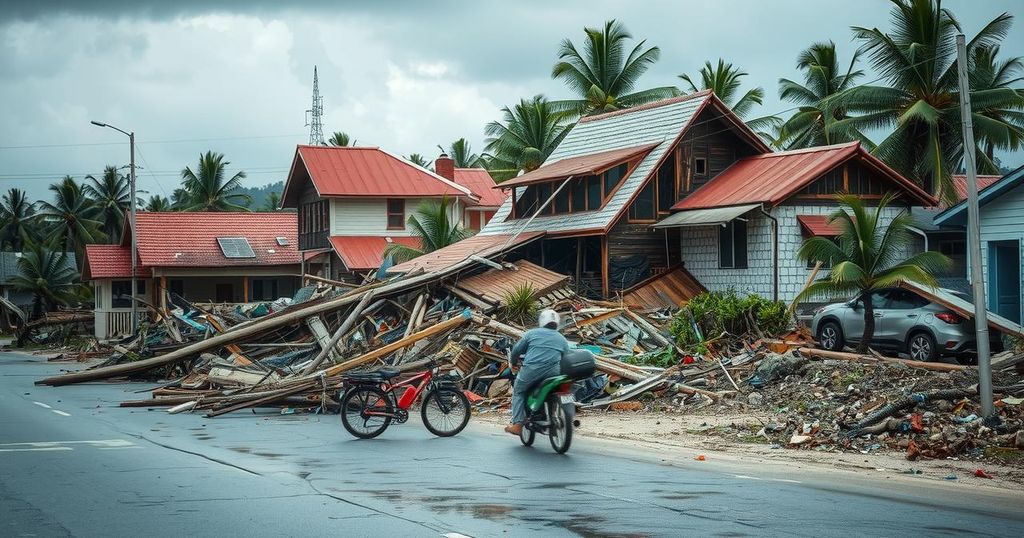Authorities in Mayotte fear that the death toll from Cyclone Chido may range from several hundred to a few thousand following its catastrophic impact. The cyclone, with wind speeds of 226 km/h, is the worst to hit in 90 years, and rescuers are currently underway to find survivors amid challenging conditions. Mayotte, one of France’s poorest regions, complicates recovery efforts due to local customs and socio-economic factors.
Authorities in Mayotte, the French territory located in the Indian Ocean, are facing a devastating aftermath following the passage of Cyclone Chido over the weekend. Current estimates suggest that the death toll may rise dramatically; while 14 fatalities have been confirmed, Prefect François-Xavier Bieuville has indicated that the final count could reach several hundred, possibly even approaching a thousand or more. With wind speeds recorded at 226 km/h (140 mph) and perilous storm surges of 13 to 28 feet, the cyclone is recognized as the most destructive to strike the region in over nine decades. On Monday, rescue operations commenced, with emergency personnel arriving from France and the nearby French territory of Reunion to find survivors amidst the wreckage.
Located near the southeastern coast of Africa, Mayotte, which is home to over 321,000 residents, is among the poorest regions of France. Many individuals reside in informal settlements termed shantytowns, which bore the brunt of the cyclone’s fury. The local demographic is predominantly Muslim, and cultural practices mandate that deceased individuals are buried within 24 hours of passing. This custom presents significant challenges in accurately assessing the death toll. In addition to the immediate humanitarian crisis, the island has been a focal point in France’s ongoing immigration debates due to a surge of asylum seekers from the neighboring African nation of Comoros, further complicating the situation.
Cyclone Chido’s impact on Mayotte not only highlights the territory’s vulnerability to natural disasters but also underscores the socio-economic challenges faced by its residents. The cyclone, classified as a Category 4 hurricane, has exacerbated the existing hardships within one of France’s economically disadvantaged regions. Mayotte’s geographical isolation, approximately 5,000 miles from Paris, renders immediate assistance difficult, underscoring the territory’s unique position within French immigration policy discussions, particularly concerning individuals seeking citizenship.
In summary, Cyclone Chido has revealed the dire circumstances in Mayotte following its unprecedented impact, raising concerns about a potentially high death toll and complicating rescue efforts. The combination of local customs regarding burial practices and the socio-economic landscape presents a complex scenario for recovery. As emergency teams continue their work, the situation remains dire, necessitating both immediate and long-term responses to address the humanitarian and infrastructural needs of the affected populations.
Original Source: www.forbes.com






